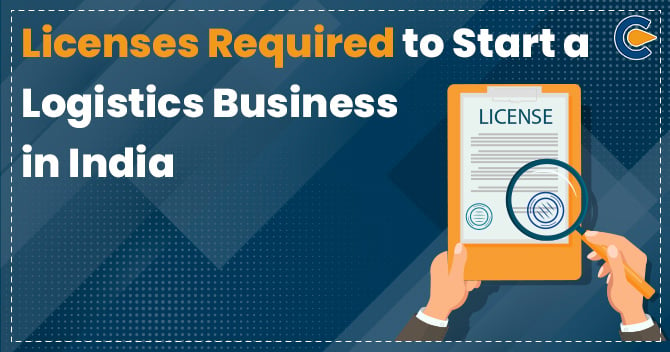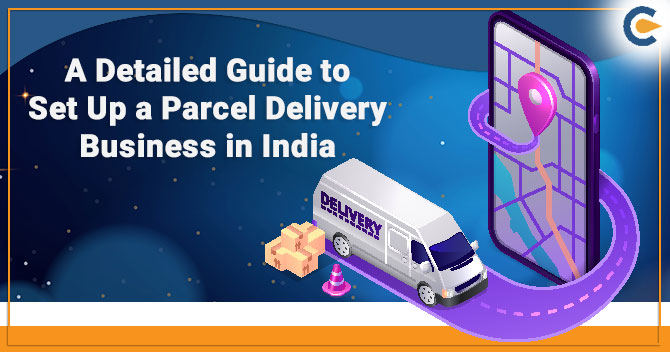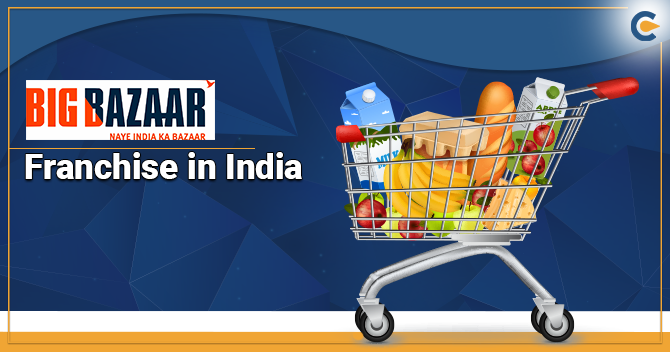The word “logistics” is come from the French word ‘logistique’ referring to the coordination & facilitation of the movement of both people and cargo. Many products we use in our daily life need to be shipped & delivered from multiple locations before being sold & used; the logistics business is a big game both locally & internationally. You make money from the logistic business. To start a logistics business in India, one has to decide upon the type of transportation, like goods transport, private transport, public transport, courier service, emergency service etc. accordingly. Licenses and registration are required, which are covered here. A logistic business requires more than usual business because it involves risks to human life as well as goods, also a lot of the time across borders. This blog gives you an idea of the License, Registration and Permits you require to start a Logistic business in India.
What is a Logistics Business?
The Logistics Business is one that stores & delivers the products of other companies. The Logistics business needs to have some methods of freight movement at its disposal, whether that is shipping, trucking, or conducting air transportation; this makes a start-up logistics business or organization a costly investment. These businesses may specialize in the export & import of the products throughout the country, or they may concentrate on inter-state ground transportation.
Types of Logistics Business in India
Following are the types of Logistics Business:
- Warehouse Services: Before having your cargo shipped from one place to another place, it will be stored in one or many warehouses. You can choose an in-house warehouse, or use the services provided by third-party logistics providers.
- Courier Shipping: These types of Logistics services perfectly meet the needs of small orders shipment, especially when it comes to shipping fragile cargo that requires care.
- Third-Party Logistics Services (3PL): 3PL services bridge the gap between consumers and manufacturers. These companies do not manufacture products; they ensure the goods remain the same in terms of quality when arriving at consumers’ locations. Logistics providers will ensure that all parties involved in the process meet their obligation; from the moment, the cargo leaves a certain point until it arrives at the designated premises.
- In-house Logistics Services: This type of Logistics may involve creating an authority within the organization whose purpose is to deal with matters logistics. The advantages of in-house logistics include having control of goods movement and in some cases, it is highly cost-effective.
- Freight Shipping Logistics Services: These types of logistics services are the shipping procedure of cargo using different kinds of vehicles like trains, trucks, and ships. It is used for cargo shipments with high volumes. Use FTLs (full truckloads) for the large loads as they can ship anywhere from 2 dozen to 23 pallets. FTLs can be used for oversize loads.
- TMS Logistics Software: TMS Stands for the transportation management system, transportation is critical when it comes to the supply chain. In addition, there is a need for functional systems from which work is made easier. TMS is one of them. With this system, users can plan, execute & optimize the activities involved in cargo transportation.
Licenses required to start Logistics Business in India
In India, the following registration and License are mandatory for the Logistics Services that are engaged in the Air Cargo Services, Freight Services, Courier, and for 3PLs.
- For Freight forwarders, it is essential to register under the IATA (International Air Transport Association)[1].
- ACAAI (Air Cargo Agent Association of India) are very useful for freight forwarders.
- Registrations with the Income Tax Department.
- The Registrar of companies, DGFT, and other Departments are also significant in India.
- Trademark Registration (when there is a unique brand name).
- Import Export Code (IEC).
- Private Limited Company Registration.
- GST Registration.
- Employees State Insurance (ESI) or PE Registration.
Structure to Start Logistics Company in India
Following are the business structures to start a logistics company in India:
- One Person Company
- Limited Liability Partnership
- Public Limited Company
- Private Limited Company
- Partnership Firm
- Sole Proprietorship Firm
Note: Any foreign entity can also set up its logistics business in India, as an Indian Subsidiary.
Procedure for Forming a Logistics Company in India
Following are the processes for forming a logistics company in India:
- Getting DIN & DSC for Directors or Designated Partners is the first stage in the process.
- Getting the suggested company name’s approval.
- Preparation of legal documentation like MOA and AOA, and other documents required to register a company.
- Filing of paperwork & other forms with the concerned Registration of Company (ROC) after applying for company incorporation.
- Getting a Business License and approval from the concerned Government Departments.
Conclusion
It is easy to start a logistics Business in India, however, the Registration and Licencing application processes can be a little challenging. You must with hard words and patience grow your business. Once you have successfully establish your name in the transport field, you will enjoy huge revenues and turnovers.
Read our Article:How to set up a logistic business in India?













